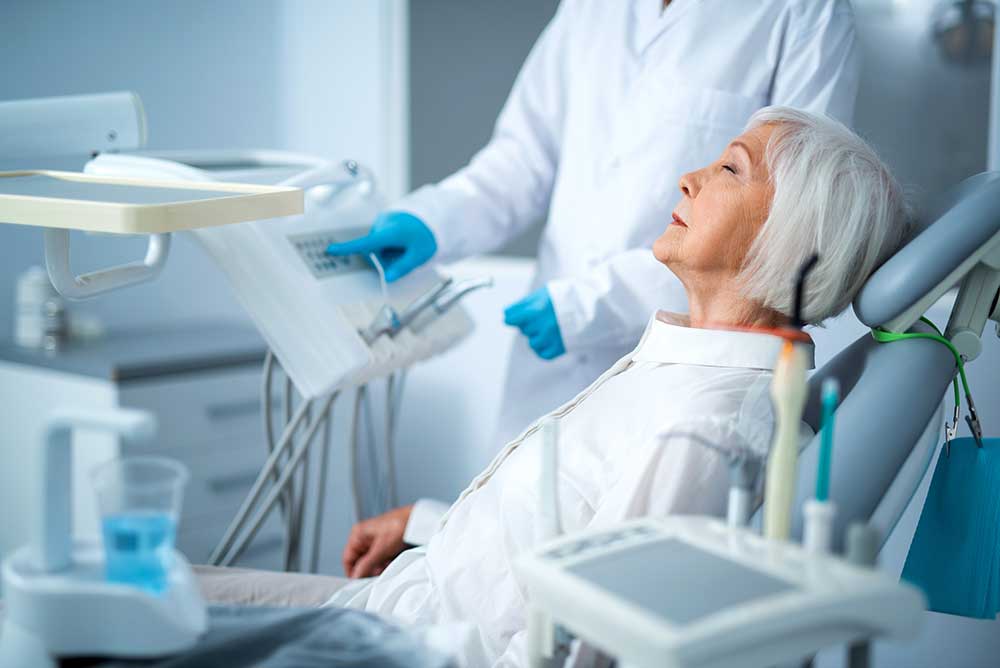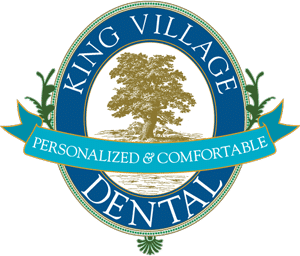

Dental Anxiety with Conscious Sedation
“Conscious sedation”, is not meant to knock you out – that’s why you’re still conscious! We offer two types of conscious sedation; Nitrous Oxide Sedation & Oral Sedation.
Woman SmilingDon’t let your anxiety keep you from caring for your teeth. Ask us if you are a candidate for conscious sedation. We are happy to make you comfortable in order to promote your overall dental health!
If you feel fear, apprehension or embarrassment when you are sitting in the dental chair, you are not alone. Many patients experience moderate to severe feelings of fear or anxiety surrounding their dental appointments.
King Village Dental is dedicated to maximizing your comfort & eliminating your worries so you can get the treatment you need without any hassle.
What Is Nitrous Oxide Sedation?
At our practice, we are happy to accommodate anxious patients. Our team uses nitrous oxide gas to ease your nerves & keep you calm while you undergo procedures. Nitrous oxide, also referred to as “laughing gas,” is a first-line treatment for dental anxiety that is safe, effective & has few side effects.
Nitrous oxide is not meant to knock you out. Instead, it will just relax you while the dentist works on your teeth. You will still be awake & able to respond to the dentist if they ask you any questions. Patients who receive nitrous oxide in the dental chair typically report feelings of comfort & wellbeing. You may also experience sleepiness, lightheadedness & a buzzing or tingling sensation in parts of your body.
Who can receive Oral Sedation?
Women who are nursing or pregnant should not receive oral sedation. Patients with heart, lung or liver diseases should consult with their dentist or primary care doctor before undergoing oral sedation.
Anxious & fearful children can also be given oral sedation. In addition to reducing your child’s discomfort, sedation can help establish a positive association with dental care. Children who receive oral sedation should be monitored for the rest of the day after their appointment & should refrain from participating in any physical activities such as sports.
Oral Sedation Overview
- Benzodiazepines may negatively interact with other medications. Be sure to let us know in advance about any prescriptions, over-the-counter products or dietary supplements you are taking. You must also avoid consuming alcohol before & after you receive oral sedation, because the combined sedative effects can be very dangerous.
- Before your appointment, we recommend that you refrain from eating anything or drinking any non-clear liquids for at least six hours. Eating shortly before you take the medication may reduce its effectiveness & can cause nausea.
- You may have trouble remembering all of your procedure, which some patients find to be a good thing. Our team will monitor your level of sedation as well as your vital signs to ensure your total comfort & safety.
- Once your treatment is finished, you will not be able to drive home. Benzodiazepines inhibit your judgment & coordination much like alcohol, so you will need someone to drive you to & from your appointment. It is normal to feel groggy & tired once the medication begins to wear off.
- You should refrain from driving or operating heavy machinery for at least 24 hours after receiving oral sedation.
